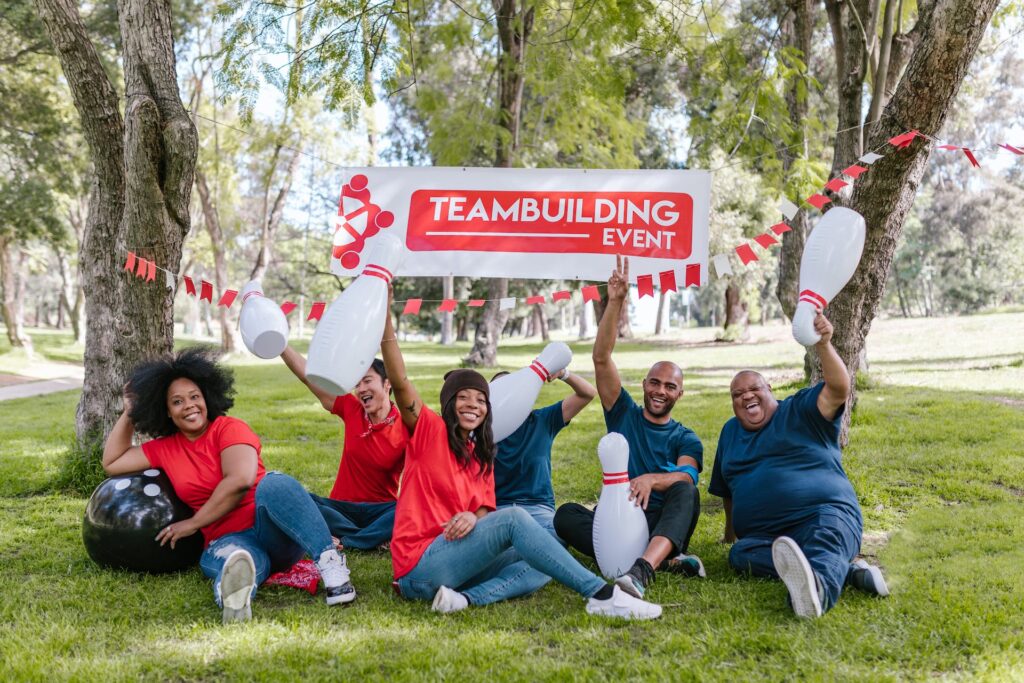In the ever-evolving landscape of personal development, few tools have emerged as influential as the art of soft skills training. Let’s face it, in the grand tapestry of career and personal growth, it’s often the subtler nuances that leave the most lasting impressions.
So, why exactly do these “soft” skills matter so profoundly? And, more importantly, what are some tangible soft skills training examples that can genuinely catapult you forward? Dive in with me, and let’s uncover the magic behind these transformative skills.

Soft skills have a funny way of being overlooked. Yet, these are the skills that make or break connections, collaborations, and overall workplace dynamics. Their “soft” label doesn’t make them any less impactful. In fact, mastering them could be your game-changer.
Why Soft Skills Training Matters
Soft skills, unlike hard or technical skills, focus on interpersonal relationships and effective communication. Soft skills training examples include leadership development, conflict resolution, teamwork, and emotional intelligence. These skills are crucial because they enhance collaboration, adaptability, and problem-solving, driving both personal and organizational success.
As the modern workplace evolves, the emphasis on soft skills only intensifies, making training in these areas indispensable.
- Building Bridges: Soft skills are the bridge builders in our personal and professional lives. They’re the secret sauce behind every successful team project, every heartfelt conversation, and every leadership triumph.
- More than Just Skills: They are not just about learning to communicate effectively or manage time better. It’s about understanding people, fostering relationships, and maneuvering through challenges with grace.
Core Benefits of Soft Skills
Soft skills, often contrasted with technical or hard skills, encompass personal attributes, interpersonal abilities, and communication proficiencies vital for thriving in the modern workplace. Here are some core benefits:
- Powerful Relationships: Whether it’s with colleagues, friends, or family, these skills aid in forging bonds that last.
- Stellar Communication: Get your point across without ruffling feathers. Sounds like a dream, right?
- Champion of Challenges: With soft skills, adversity isn’t an obstacle; it’s an opportunity.
Soft skills training examples include workshops on emotional intelligence, conflict resolution sessions, communication exercises, and role-playing activities to enhance empathy and listening skills. By integrating these training methods, individuals and organizations can reap the myriad benefits of honed soft skills.
Soft Skills Training Examples that Elevate Careers
Discover pivotal soft skills training examples that can significantly elevate careers. This focuses on the indispensable role that soft skills play in personal and professional development. Through these examples, readers will gain insights into how mastering these crucial soft skills can lead to career advancement, improved relationships, and overall personal growth.
The ultimate goal is to empower individuals to harness the transformative power of soft skills and propel their careers to new heights. Let’s dive into some core soft skills training examples:

1. Communication Training
Effective communication, a cornerstone of soft skills training examples, is more than just speaking or writing. It’s about conveying thoughts, ideas, and feedback clearly and constructively.
- Active Listening Techniques: Training individuals to truly listen can improve relationships and team dynamics. By actively focusing on the speaker, refraining from interruptions, and providing feedback, one can better understand, empathize, and respond.
- Presentation Skills: In the corporate world, the ability to present information coherently and persuasively is invaluable. Workshops focusing on structuring content, utilizing visual aids, and mastering public speaking can empower individuals to capture their audience’s attention.
2. Teamwork and Collaboration
The synergy of a cohesive team can achieve much more than a group of individuals working in silos.
- Group Dynamics and Roles: Training sessions that spotlight the importance of each team member, their roles, and how they fit into the bigger picture can foster mutual respect and collaboration.
- Conflict Resolution Techniques: Conflicts are natural in any setting with diverse personalities. Equip employees with the tools to navigate disagreements constructively, ensuring issues are resolved with minimal disruption.
3. Leadership and Influence
Leadership isn’t confined to managerial roles. Anyone can be a leader, and influencing others isn’t about wielding authority but inspiring and guiding.

- Leading with Empathy: Emotionally intelligent leaders resonate better with their teams. Training that emphasizes understanding and relating to team members’ feelings can foster stronger, more trustful relationships.
- Influencing without Authority: This is especially crucial for non-managers. Training individuals to build rapport, establish credibility, and communicate effectively allows them to influence decisions and drive change, regardless of their position.
4. Problem-solving and Creativity
In an ever-evolving workplace, soft skills training examples that focus on creatively tackling challenges can set individuals apart.
- Brainstorming Techniques: Encouraging uninhibited idea generation can lead to innovative solutions. Sessions that teach structured brainstorming can help teams harness collective creativity.
- Analytical Thinking: Workshops that encourage breaking down complex issues to understand root causes and devise effective solutions can elevate one’s problem-solving skills.
5. Time Management and Productivity
Soft skills training examples demonstrate that efficiency isn’t just about working hard but also about working smart.
- Prioritization Techniques: When everything seems urgent, training on how to categorize tasks based on importance and urgency can lead to better productivity.
- Efficient Task Batching: Grouping similar tasks together can reduce mental load and boost efficiency. Training sessions that teach this technique can significantly enhance work output.
Incorporating these soft skills training examples into one’s professional development journey can be transformative. As the lines between various professional roles blur, and as teamwork and collaboration become more critical, soft skills will continue to gain importance. Investing time in honing these skills can propel careers forward, ensuring not just job success, but also personal growth and fulfillment.
Implementing Soft Skills Training in Daily Life
When it comes to soft skills training examples, it’s important to remember that while seminars and workshops offer great insights, true mastery of soft skills comes from daily practice and mindful implementation. Ever wondered how to seamlessly weave these skills into your daily life? Here’s how.
1. Practice Active Listening
Whether you’re in a team meeting, a casual coffee break chat, or even at home, try to genuinely focus on the speaker. Not only will this make the speaker feel valued, but it will also improve your retention and understanding of the discussion.
2. Seek Feedback
After presentations or discussions, take the initiative to ask for feedback. Was your message clear? Was there anything you could have done better? This proactive approach can work wonders in refining your communication skills.
3. Team Building Activities
Engage in team-building activities, both formal and informal. Whether it’s a team outing, a puzzle-solving session, or even online games, these activities can enhance teamwork and foster better relationships.

4. Daily Reflection
Set aside 10 minutes at the end of your day for introspection. Reflect on the day’s interactions, any conflicts that arose, and how you handled them. This can offer insights into areas of improvement.
5. Task Prioritization
Begin each day by listing out tasks and categorizing them based on urgency and importance. This habit not only boosts productivity but also offers clarity, ensuring crucial tasks aren’t overlooked.
6. Seek Mentoring
Regardless of where you stand in your career, there’s always something new to learn. Seeking a mentor, someone who can guide, offer insights, and provide feedback can be instrumental in honing soft skills.
The Significance of Continuous Learning and Training
The world is in a constant state of flux, and adaptability is the name of the game. Soft skills, unlike hard technical skills, evolve with experiences, challenges, and interactions. Engaging in continuous learning, be it through books, online courses, webinars, or even simple interactions, can ensure you remain at the forefront of personal development. Remember, it’s not the destination but the journey, and this journey of self-improvement is endless.
Conclusion
In the grand arena of career advancement, soft skills have emerged as the unsung heroes. These subtle yet potent skills can transform interactions, foster relationships, and catalyze growth. Soft skills training examples are not just methodologies but pathways to unlocking unparalleled personal and professional success. So, why wait? Dive into the world of soft skills, harness their power, and propel yourself into a brighter, more successful future. Ready to embark on this transformative journey?





